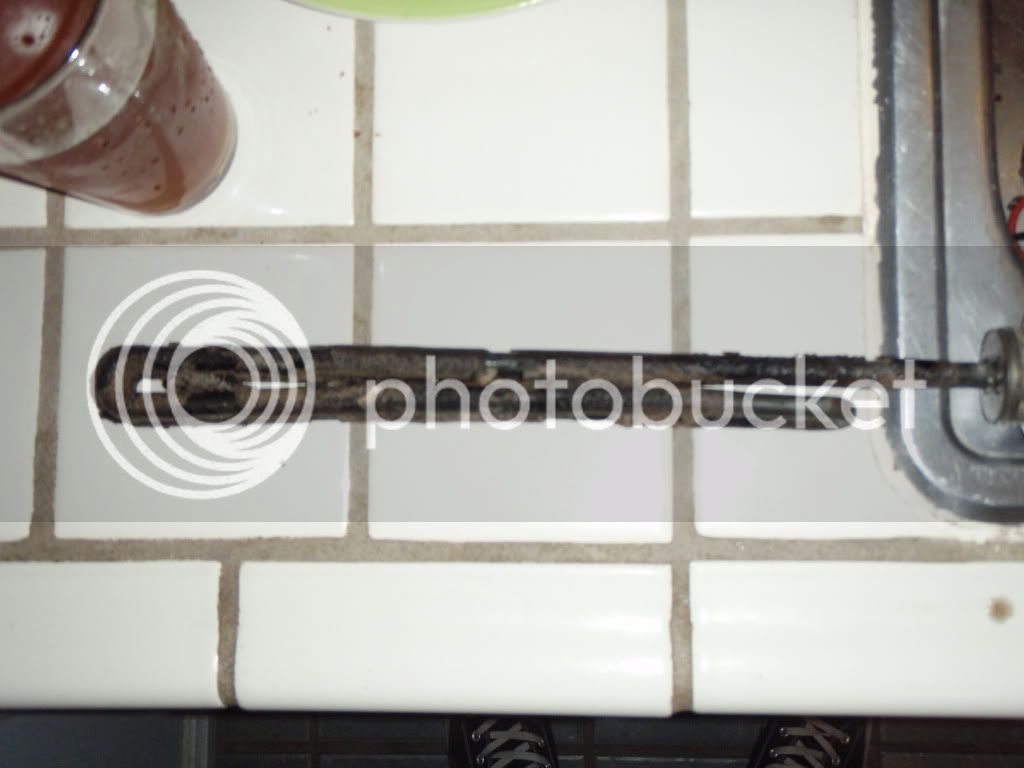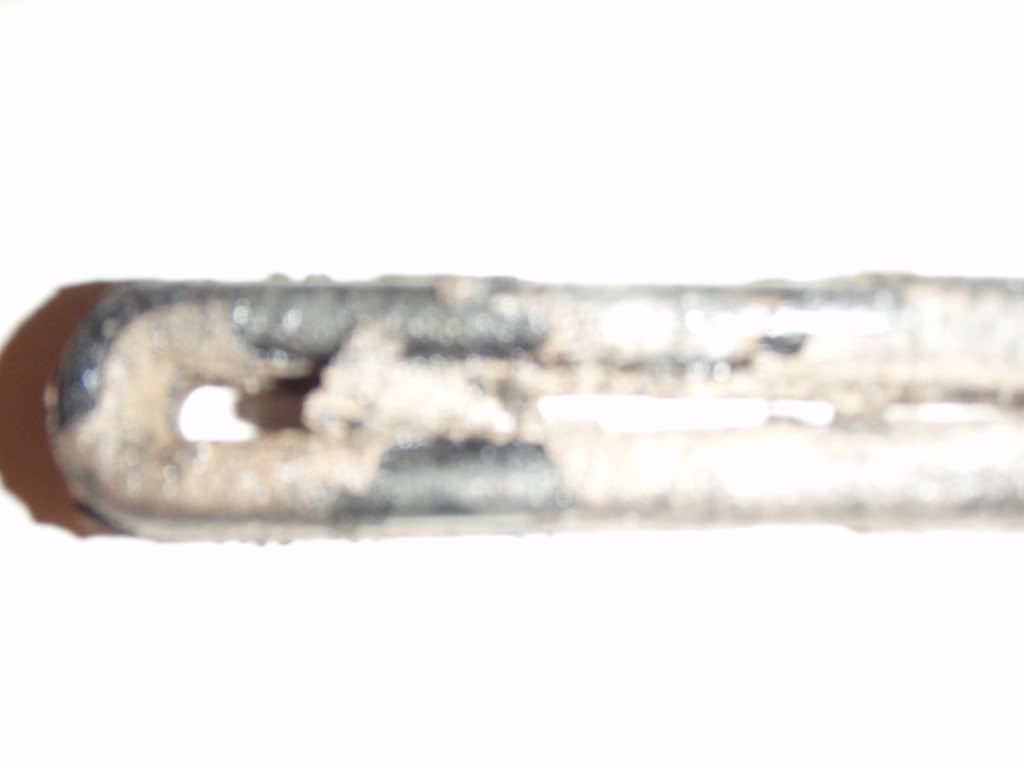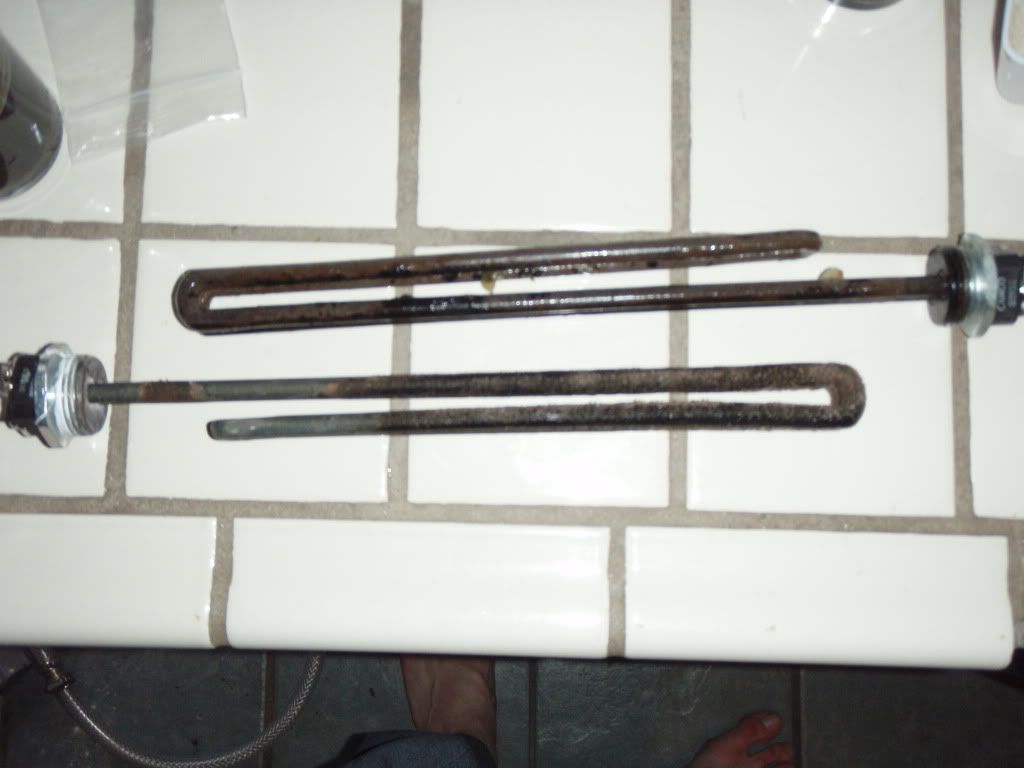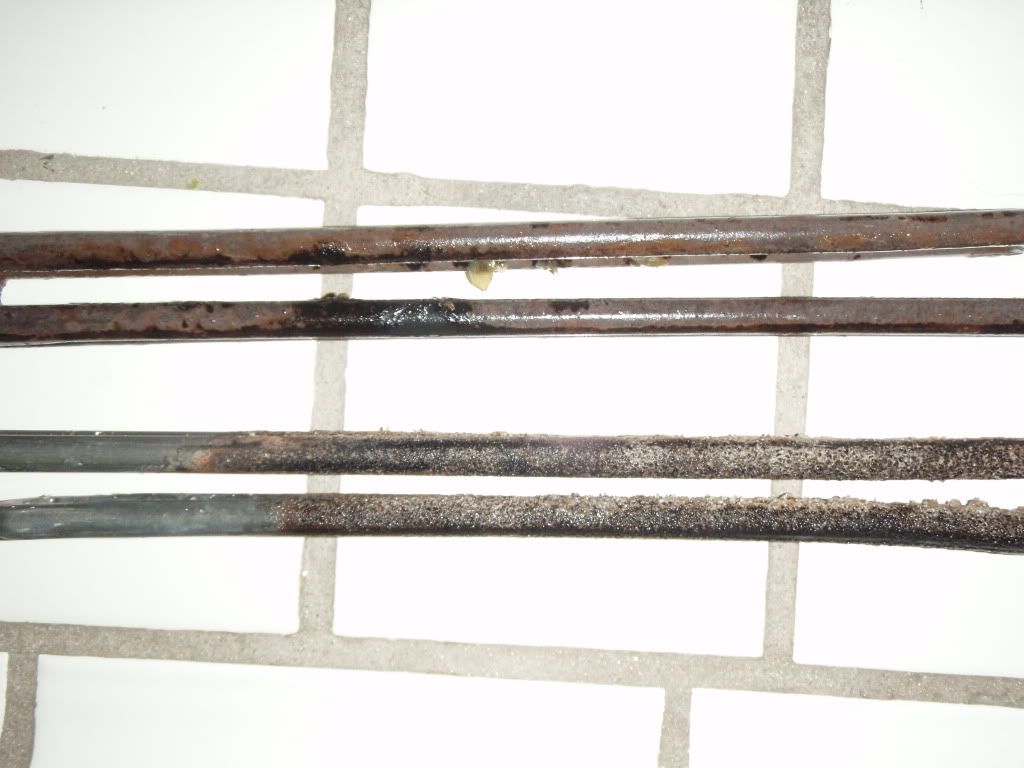I didn't and now I've got a batch of pale ale that has a distinct smokey flavor. I thought maybe it was carry over from a batch of rauchbier, and since all the other beers I've done recently have been fairly dark I didn't notice it in them. Today, on a whim, I decided to check the element in my RIMS and I found this:


I haven't fry fired it since the last time it was disassembled, and I clean it by recirculating hot oxyclean for 15-20 mins after every brewday. Apparently the oxyclean wasn't good enough to truly clean the element. The stuff that's caked on there isn't burnt on like when you spill on an electric stove, it's more like a super thick layer of the seasoning on a cast iron pan. It flaked right off the element, and I checked the tube and there isn't a spot on the inside. I think that proteins are probably adhering to the porous heating element, and then slowly cooking into that thick black cake on the element.
Since I'm brewing tonight, I installed my spare element in the RIMS. I will be cleaning the old one with steel wool and keeping it as my spare.
After seeing this I'm going to get one of the tri-clover RIMS tubes from brewer's hardware. While my current setup is running great, cracking the box and undoing the electric connections after every brewday isn't something I'm going to do.


I haven't fry fired it since the last time it was disassembled, and I clean it by recirculating hot oxyclean for 15-20 mins after every brewday. Apparently the oxyclean wasn't good enough to truly clean the element. The stuff that's caked on there isn't burnt on like when you spill on an electric stove, it's more like a super thick layer of the seasoning on a cast iron pan. It flaked right off the element, and I checked the tube and there isn't a spot on the inside. I think that proteins are probably adhering to the porous heating element, and then slowly cooking into that thick black cake on the element.
Since I'm brewing tonight, I installed my spare element in the RIMS. I will be cleaning the old one with steel wool and keeping it as my spare.
After seeing this I'm going to get one of the tri-clover RIMS tubes from brewer's hardware. While my current setup is running great, cracking the box and undoing the electric connections after every brewday isn't something I'm going to do.




